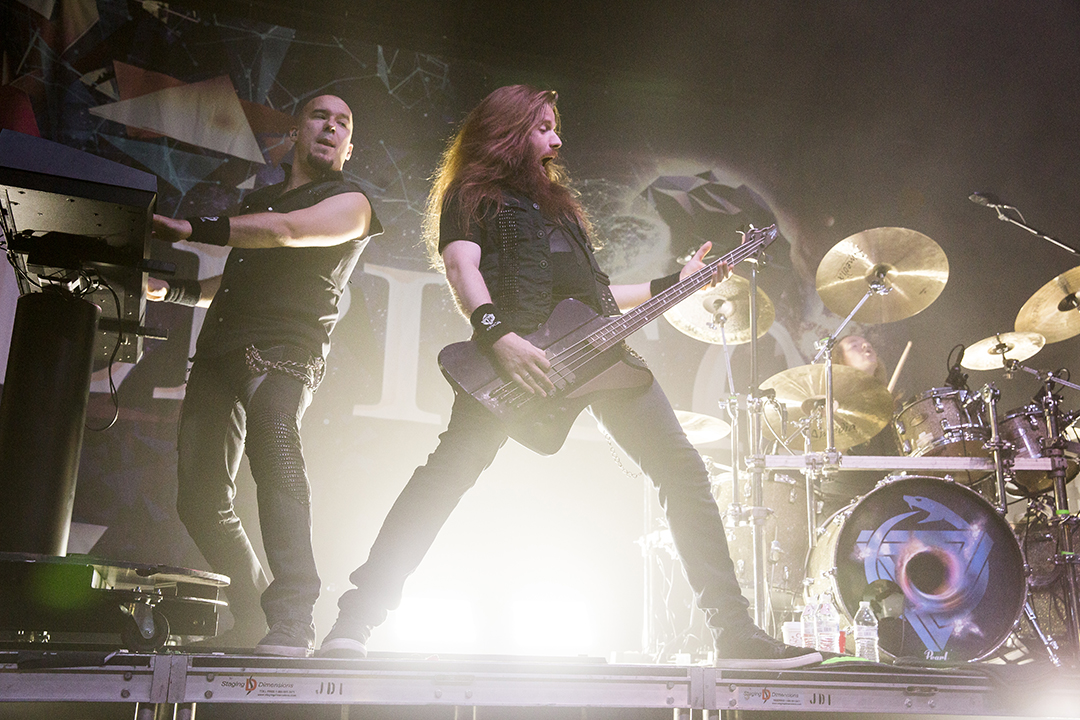

Yes, they have maintained a similar path since Design Your Universe, but there’s no other band out there doing this kind of music with so much sonic tapestry, and The Holographic Principle is further proof of that. I’ve heard some criticism about them for falling into a formula for their albums but, as truthful as this statement may be, what’s there to say when that formula is unique and of their own making. Initial disclaimer - I like Epica, A LOT. Background, recording and writing Īfter Epica's 2014 album The Quantum Enigma was well received and the band toured Europe, Asia, Africa and both South and North America, halfway through 2015, Epica started a new journey – writing and recording their seventh studio album The Holographic Principle.Released on Septem(Nuclear Blast Records) "In between touring, we spent our time in the Sandlane Recording Facilities with producer Joost van den Broek" explained guitarist Isaac Delahaye. The songwriting process took a year, and resulted in 27 songs written, but 18 songs recorded 12 were featured on the album, with the additional six songs recorded for a later release. Speaking to Spark TV, the lead singer Simone Simons stated: "Since The Quantum Enigma was received so well, we set the bar so high, but we accepted the challenge to make an even better record. We had so many different instruments – real, live instruments.Īnd we've done everything bigger than before – we had more orchestra, a bigger choir. Vocally, I put everything in the record that I can possibly do, and I'm very pleased with it." According to Simone, she has once again experimented a bit with her vocal approach on the new album. "With each record, I try to get the best out," she said. "And Joost (van den Broek), our producer, he's also very good at getting everything out of me. And the songs themselves, they just ask for a lot of variation in the vocal style. And I do opera, rock, pop, and in the ballads you hear the really soft voice.

"I think it needs to be all in balance," she said.Īnd, yeah, I can belt out some high notes as well." Even though "The Holographic Principle" is one of Epica's most ambitious offerings to date, the album doesn't sacrifice any of its instant appeal, something which Simone says was intentional. "We are, in heart, a metal band going in the symphonic direction.

The orchestration, the choir is a little bit like the seventh and eighth bandmember of Epica, and that's something we'll always keep in there. And the choir parts are often very catchy, the choruses are very catchy. But on this record, besides having catchy melodies, we also wanted to have really groovy vocal lines. And that's something that we worked on as well we changed up some things to make it less predictable." One of the aspects of Epica's sound which has been enhanced on "The Holographic Principle" is the growling vocal style of Epica guitarist and main songwriter Mark Jansen. "Well, it's Mark and it's actually our drummer as well," Simone said. "Mark is the main grunter, and our drummer, Ariën (van Weesenbeek), has a really nice, thick sound. So I don't know if he sang all the grunt parts as well, if he doubled them with Mark, but them together makes a totally new grunt sound, and I like it. Mark can do also really low grunts, he can do screams, and Ariën really has that deep sound to it." Simone also praised the contributions of Isaac Delahaye, who came into the band in 2009. "The guitars are definitely more brutal," she said. "Also in the mix, the melodies, the grooves, and I think that ever since Isaac joined the band, not only as a songwriter but also the guitars have been lifted to a different level, and have become more interesting to listen to, I find myself. So I'm a big fan of his guitar work and also his songwriting." īefore album's release, Epica release a three part in-studio documentary about their journey with the album recording. The videos were uploaded to Epica's YouTube channel and revealed on their website on 18 July 2016, 25 July 2016 and 24 August 2016 respectively.

Mark Jansen commented on the concept of the album: "'The Holographic Principle' deals with the near future wherein virtual reality has taken off and allows people to create their own virtual worlds which can't be distinguished from 'reality as we know it.' This raises the question whether our current reality is a kind of virtual reality in itself, a hologram. This implies the existence of a higher reality which we currently do not have access to.


 0 kommentar(er)
0 kommentar(er)
